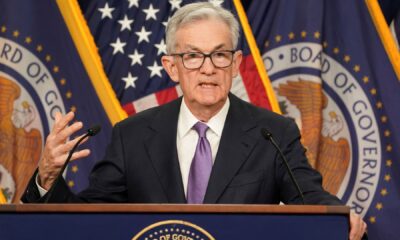Business
Inflation expected to stabilize at 2% in 2024, says Bank of England deputy governor

Sir Dave Ramsden, the Bank of England’s deputy governor who oversees markets, has indicated that inflation is expected to stabilize at 2% in 2024, possibly signaling the possibility of interest rate cuts.
His comments differ from the Bank’s previous forecasts and suggest a possible revision to the inflation outlook to be published next month. Ramsden’s comments come amid signs of easing inflationary pressures, mainly due to a slowdown in the labor market.
Ramsden expressed greater confidence in the evidence pointing to a reduction in domestic inflationary pressures, citing improved inflation dynamics. He highlighted a scenario in which inflation remains close to the Bank’s 2% target throughout the forecast period. This optimism is supported by indicators such as a slowdown in wage growth and a decline in job vacancies to pre-pandemic levels.
Despite Ramsden’s optimism, the Bank’s monetary policy committee (MPC) kept the key interest rate at 5.25%, with eight of nine members voting in favor of stability. However, Ramsden’s comments indicate a possible shift within the committee towards supporting rate cuts, marking a departure from the position taken since 2020.
Ramsden’s views on declining inflation could lead to divisions within the MPC, especially between permanent and outside members. While Ramsden suggests a favorable environment for rate cuts, some outside members, including Megan Greene, remain cautious due to ongoing wage pressures.
Andrew Bailey, the governor of the Bank of England, echoed Ramsden’s sentiment on falling inflation, noting that geopolitical tensions, especially in the Middle East, have not significantly affected oil prices as initially feared.
Market expectations for monetary easing are muted, with forecasts now predicting just one or two rate cuts this year, compared to previous forecasts of up to five cuts. This shift in expectations follows data indicating persistently high inflation in the United States, prompting a reassessment of global monetary policy paths.
As discussions unfold at the International Monetary Fund’s spring meetings, officials have stressed the need for the new British government to tackle the country’s debt burden through spending cuts and tax adjustments.













